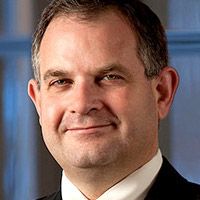FDA Considering Sunovion Drug Application to Treat Binge Eating Disorder
Sunovion seeking FDA approval for dateline after successful clinical trials treating binge eating disorder.

Antony Loebel, MD
A new drug treating binge eating disorder (BED), which affects 4.1 million in the US, could be hitting the market in 2020.
The US Food and Drug Administration (FDA) accepted a New Drug Application (NDA) on July 30 for dasotraline, a new dopamine and norepinephrine reuptake inhibitor to treat the disorder, developed by Sunovion Pharmaceuticals, based in Marlborough, Mass.
Dasotraline’s pharmacokinetic profile is characterized by an extended half-life, making it potentially viable for sustained control of moderate-to-severe BED symptoms.
In an NDA, a drug sponsor formally proposes for approval with data gathered from both animal studies and human clinical trials. The FDA evaluates whether the drug is safe and effective, while the benefits outweigh the risks, whether the drug’s proposed labeling is appropriate, and whether the manufacturing methods proposed are adequate to preserve the drug’s identity, strength, quality, and purity.
The FDA’s action date under the Prescription Drug User Free Act for dasotraline is currently set for May 14, 2020.
The new drug is an investigational medicine taken once-a-day. During a pair of 12-week, randomized, placebo-controlled studies, the medication was generally well tolerated and demonstrated significant efficacy to treat moderate-to-severe BED symptoms.
The first clinical trial—SEP360-221—was a 12-week, randomized, double-blind, parallel-group, multi-center, placebo-controlled, flexible-dose, phase 2/3 trial comparing the new drug with placebos in adults with moderate-to-severe symptoms.
The patients received 4-to-8 mg of the drug was administered once a day. Investigators found dasotraline was statistically superior to the placebo on the primary efficacy endpoint and all crucial secondary efficacy endpoints such as CGI-S, Y-BOCS-BE, and percent of subjects with a 4-week cessation from binge eating.
The second clinical trial—SEP360-321—was a phase 3, 12-week, randomized, double-blind, parallel-group, multi-center, placebo-controlled, fixed-dose study where investigators compared the drug to a control group taking a placebo.
Participants were administered doses of 4 or 6 mg of dasotraline or the placebo. The patients who received the maximum dosage of the drug saw a statistically significant decrease in binge days per week at the 12-week mark.
Patients also had the option following the second study to enroll in a 12-month, open-label extension study to evaluate the long-term safety and tolerability of dasotraline to treat BED.
Adverse side effects from both trials included insomnia, dry mouth, decreased appetite, anxiety, nausea, and decreased weight.
Antony Loebel, MD, President and Chief Executive Officer at Sunovion, said there are currently very few treatment options available to treat BED.
“The disorder is often seen in association with other behavioral conditions such as depression, substance abuse and post-traumatic stress disorder, and it is often under-diagnosed and under-treated,” Loebel said in a statement. “We are confident in the value dasotraline has shown in clinical trials to people living with BED and look forward to working with the FDA to advance this novel treatment option.”
BED is characterized by the American Psychiatric Association in the Diagnostic and Statistical Manual of Mental Disorders by recurrent and persistent episodes of binge eating, including consuming large quantitates of food in a short period of time, a perceived loss of control during the episode, and intense feelings of shame, guilt, and embarrassment following the event.
These individuals also suffer from depressive and anxiety symptoms, as well as several medical complications that can lead to impaired functioning and quality of life. BED often begins in young adulthood, but can start later for some.